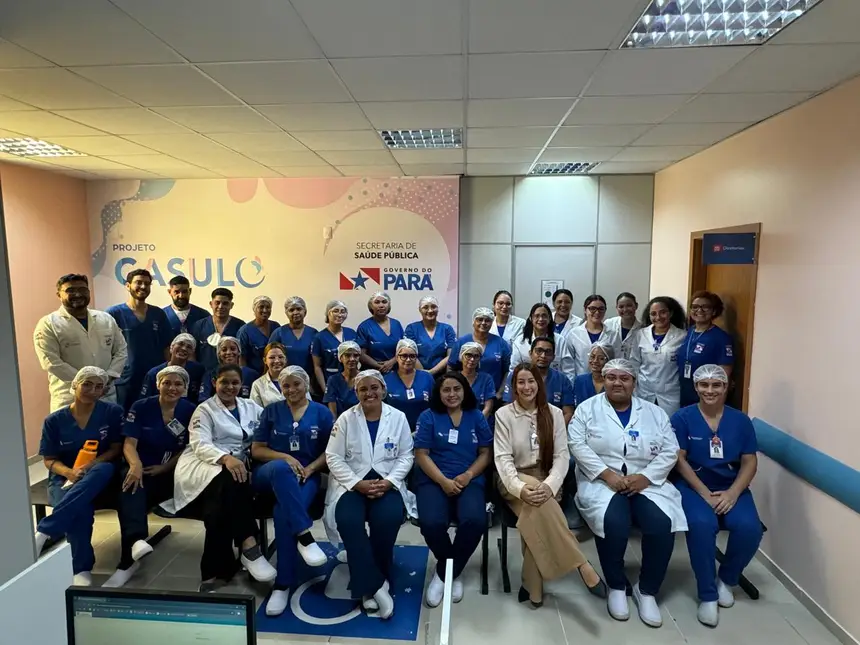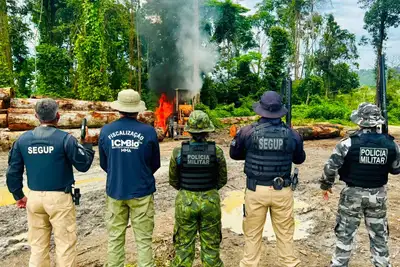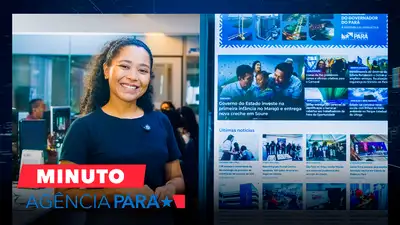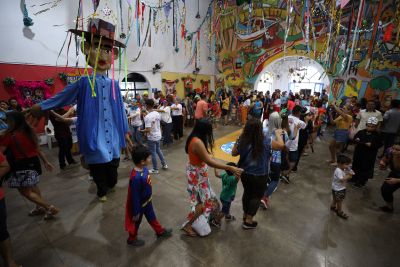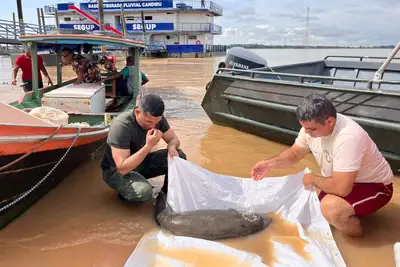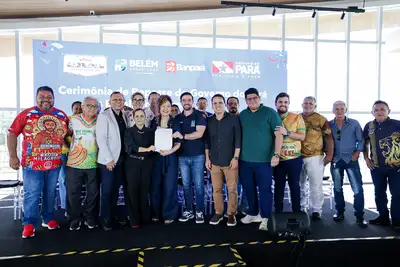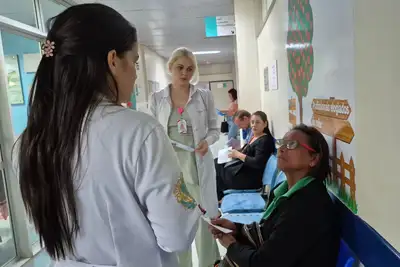Between protocols and welcoming, Nursing enhances actions at the Metropolitan Polyclinic
In one month, over 40,000 people are assisted, reinforcing the importance of the unit and the national policy of humanization in the Unified Health System
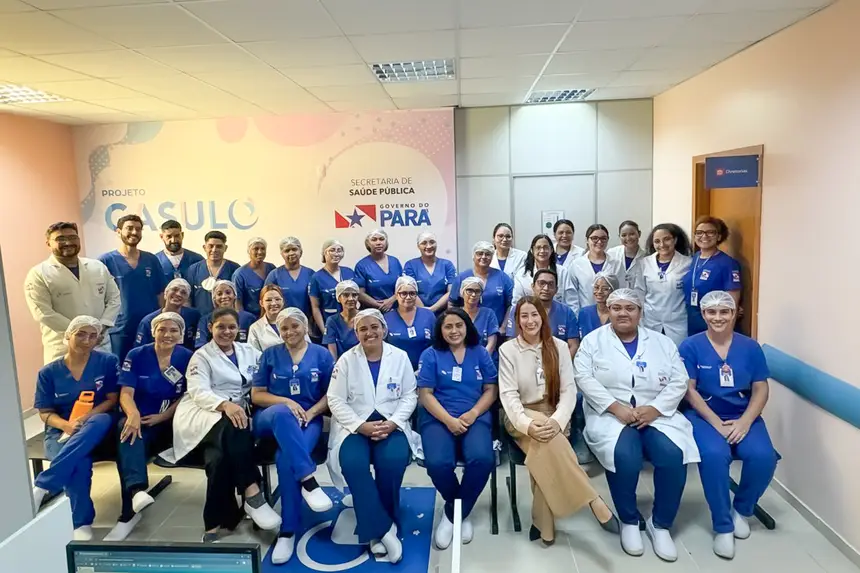
In the intense rhythm of public health corridors, where every minute can represent the difference between complications and well-being, nursing stands as a fundamental link between patients, doctors, and the entire care system. At the Metropolitan Polyclinic of Pará, in Belém, a unit of the State Government, the team's commitment goes beyond technical procedures: it is also about welcoming, listening, and comprehensive care.
According to the nursing manager, Kérina Quaresma, the professionals' performance is decisive for the quality of care. "The nursing team plays a fundamental role in ensuring the quality and safety of the care provided to users, according to the principles of the SUS. We operate in a multiprofessional and organized manner, with humanized welcoming, qualified listening, and technical protocols that mitigate care risks and complications," she explains.
Even in the face of high patient demand, which reaches over 40,000 monthly appointments, the organization allows for maintaining efficiency without losing sight of humanized care. "We follow well-defined protocols that guide each stage of care and reduce risks. In addition, employees are constantly trained to strengthen both patient safety and the humanization of care," adds Kérina.
HUMANIZATION
The practice is guided by the guidelines of the National Policy of Humanization (PNH), which, according to the manager, directs the nursing routine. "We always seek to offer qualified listening, respect the uniqueness of each user, and ensure an ethical and humanized welcome, from reception to final follow-up," she states.
Among the team's responsibilities is triage, which prioritizes those who need it most. "In triage, we conduct an initial holistic assessment, collect data, and identify priority criteria according to legal and clinical protocols," details nurse Thiago Costa from the nursing office.
Moreover, professionals are responsible for guiding users before and after exams and procedures, ensuring clarity and confidence at each stage. "Before exams, we guide specific preparations and check contraindications. After procedures, we explain immediate care, warning signs, and home care. The goal is to ensure that care goes beyond point-in-time service," Thiago completes.
Performance
The scope of nursing practice at the Polyclinic is significant. In addition to consultations, the team works in the execution and/or support of exams such as MAPA, Holter, electrocardiogram, laboratory collection, stress test, spirometry, electroencephalogram, echocardiogram, and ultrasound. They also participate in strategic sectors, such as the Central Sterilization Material, endoscopy, emergency, radiology, and outpatient procedure rooms. The unit also has a nurse in infection control and in the quality and patient safety core.
"This broad performance highlights the essential role of nursing in comprehensive care for the population, reinforcing our commitment to the universality, comprehensiveness, and equity of the SUS," emphasizes Kérina Quaresma.
The team also reinforces self-care guidance after discharge or outpatient care. "We encourage healthy lifestyle habits, such as balanced nutrition, adequate sleep, hydration, and physical activity, as well as proper adherence to prescribed treatments and immediate seeking of care in urgent cases. Our role is to promote autonomy and self-care," concludes the manager.
Service: The nursing service at the Metropolitan Polyclinic shows daily that health care is built on the sum of technique, commitment, and humanity — values that make the unit a reference in specialized public care in Pará.
Appointment scheduling at the Metropolitan Polyclinic is done through the Relationship Center, via WhatsApp Business at (91) 98521-5110, or by email at agendamento.polimetropolitana@issaa.org.br. For care, it is necessary to present ID, CPF, SUS card, and proof of residence. In the case of children without ID, the birth certificate along with the mother's documents is accepted.
Text by Roberta Paraense


